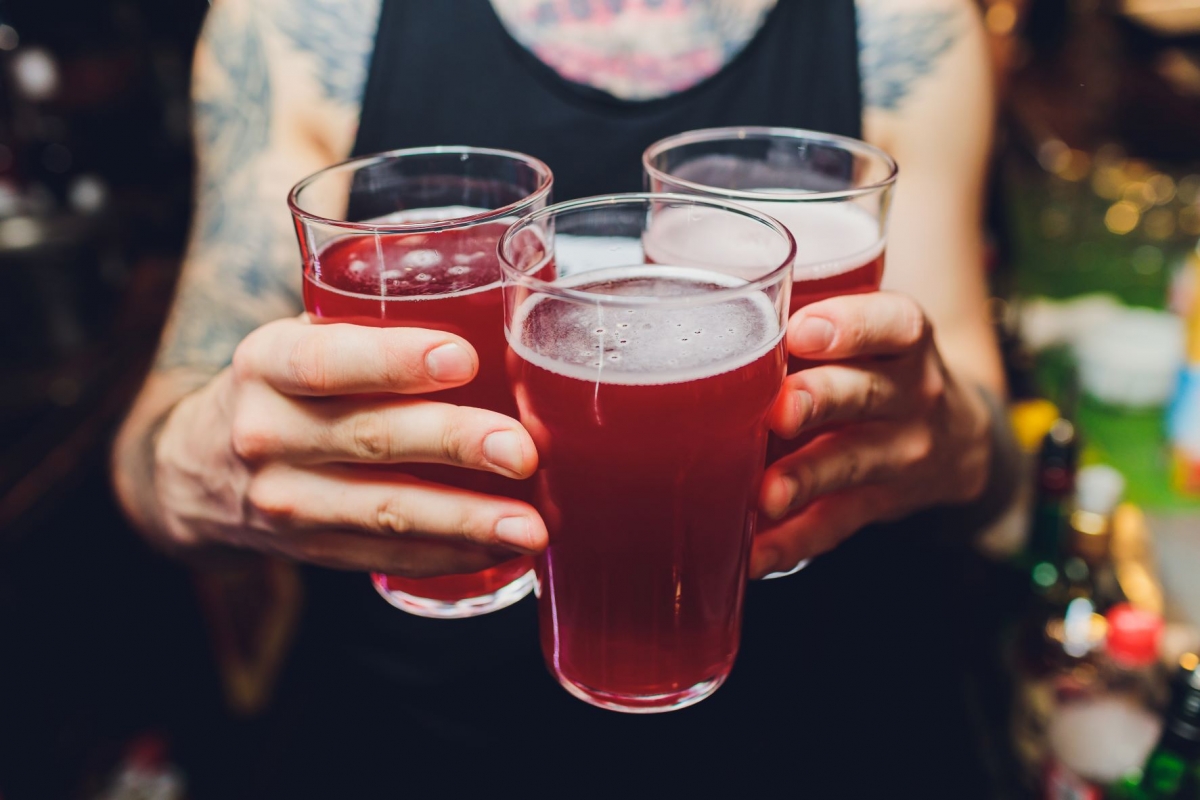Experimenting with Fruit: Comparing Concentrates, Extracts, Purees & More
This post was originally shared on The Brewer Magazine website

The warmer seasons return, and your taproom customers expect the flavors of summer: Blueberry Pilsner, Concord Sour, Peach Saison, Raspberry Radler.
You keep meaning to experiment with fruit, but you’re never sure where to start. Extracts or concentrates? Whole fruits or purées?
It’s never too late to start experimenting. No matter the season, there is a place for fruited beers in rotation. So here are some questions to ask and comparisons to make when choosing your ingredients.
What are you going for?
No two fruit brews are alike.
I’ve tasted beers from different breweries that use our Tangerine Craft Concentrate, but you would have no idea the fruit was sourced from the same supplier.
And that’s the point: each brewer keeps their style in mind when planning the other components — grains, hops, equipment, and fermentation method. What tastes grand to one brewer might taste grunge to the next.
When you’re in the concept stage for a fruit beer, start with the end in mind. Do you want the fruit to complement the base beer? To contrast? To highlight?
How will you use it?
Now that you know the end goal, define the process. Will filtering equipment be available? Will small batches require small pack sizes of fruit ingredients? Will fruit flavor be added in production or in the taproom, blended at large or in single-serve pumps? Work with what you have, but stay flexible in case your setup changes down the road.
For what beer styles?
A light raspberry extract might not match the intensity of a Stout. And grapefruit puree might be too heavy for a refreshing summer Radler. Let your beer type do the talking for you, and take note of methods used by other breweries.
I’ve learned a lot from brewers who contact Old Orchard with their reasons for switching fruit suppliers and strategies. These brewers often find us through conversations with other brewers, so make sure to ask your brewing community about their fruit findings (and failures).
What is your brand focus?
If your brand has a strong message, you’ll probably lead with that message in your sourcing choices.
If your selling points are all about local or community, you might prioritize fresh or frozen seasonal fruit grown in your region. If you are known for experimental one-off brews, you’ll lean toward a supplier specializing in lesser-known flavors. Or maybe you’re the brewery tackling demand for more familiar fruits: the berries, the citrus, the tropical notes.
There’s a place for all of these breweries on the block. Just make sure you define your non-negotiables when aligning fruit suppliers with your brand.
What are your beverage categories?
More and more breweries are going beyond the beer. Seltzer, cider, spritzer — it’s all on the table now. If you are producing beverages across categories, decide whether multipurpose ingredients are important to you. Would you rather use the same ingredient to streamline sourcing and inventory, or would you rather have multiple suppliers on standby? Purees and whole fruit won’t transcend categories, but concentrates and extracts can be versatile between beers, ciders, seltzers and spritzers.
Pros and Cons
Now that you’ve answered the preliminary questions about fruit sourcing, it’s time to weigh the pros and cons of your fruit options.
BLENDS*
(*processed fruit with additional ingredients such as natural flavor, natural sources of color, etc.)
Pros: Consistent product. Lower cost. “Boost” to aroma/color/flavor.
Cons: Some blends may contain added sugars and syrups (check the ingredients).
CONCENTRATE
Pros: Consistent product. Clarity (no filtering needed). Blends well. Maximizes storage space. Can be pre-diluted into juice or added directly.
Cons: Not high in tannins. Too much concentrate can overpower a beer with sweetness.
EXTRACT/ESSENCE
Pros: Easy to use. Many are TTB-approved. Less storage space required.
Cons: Can be artificial rather than natural. Can leave undesirable aftertaste. Does not contribute to texture or body.
FRESH/FROZEN
Pros: Single ingredient. Can be local/regional.
Cons: Expensive. Messy. Intensive preparation (mashing/pasteurizing). Inconsistent ripeness.
PUREE
Pros: Aseptic. Preferred texture for smoothie sour beers.
Cons: Haze. Filtering required. Expensive.
Summary
If your brewery digs deep into the world of fruited beers, there is a good chance you’ll test all forms of fruit eventually. Don’t hesitate switching suppliers until you find something that clicks. Your brewing community can point you in the right direction from their experience and recommendations, but remember: your beer might be for a different style, method, or market. Keep your end goals in mind and your brand always in front of you.
NEXT STEPS
We'd love to hear about your forays into experimental fruit brewing. Feel free to contact us below or place an order for your fruit ingredients.
Syrah "Sy" Linsley is the manager of Old Orchard's bulk supply program, which primarily serves the craft beverage industry with craft juice concentrates. Her passion for fruit-forward beverage evolved from the three years she spent as a fruitarian (only eating fruit) as well as the few years she worked in product development and fermentation. The highlight of Sy's day is to connect with craft beverage makers, so don't be shy: schedule a "Taproom Chat" or hear back from her through our contact form.
Want Brew Blog posts and bulk program updates emailed to your inbox monthly?
Just create an account with us and you'll be subscribed to our "Best of the Zest" Newsletter.
































